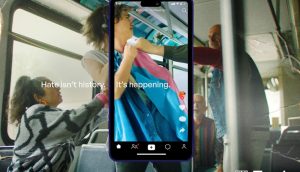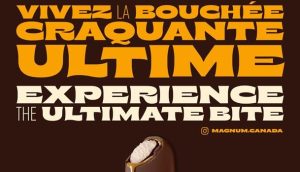With only 19 days left in the municipal elections, the mayoral candidates in Toronto are starting their final drive in an attempt to garner the attention necessary to win the vote. The strategies they’ll use to rally support will help determine who becomes the next mayor of Canada’s biggest city.
MiC asked some local media experts to shed light on the campaigns of the front-runners, and to instruct them on how to best utilize the final days.
All three of the experts agreed on a few main points.
The first was that a traditional mass media buy is out of the question because of the local nature of municipal campaigns and the small budgets the candidates have to work with.
Jack Bensimon, president, Bensimon Byrne, told MiC that ads still play a role, just not the way we’re used to. Instead of appearing constantly on TV and billboards, and in print, they more often appear through earned media.
‘I honestly don’t think paid advertising on a mass level has a huge role to play in this campaign,’ he said. ‘It’s more about the ad than it is about the buy. It’s about shaping the media coverage more than it is about talking directly to the voters.’
He admits there are people who will disagree with him and point to the David Miller campaign in 2003, which was famous for the use of a broom as a symbol.
‘David Miller didn’t win because he had a brilliant ad campaign, the brilliant ad campaign amplified the existing media narrative that he was going to attack corruption at City Hall,’ Bensimon says. ‘If he hadn’t already established a narrative that he was going to attack corruption at City Hall, the broom would’ve been a non sequitur.’
The second thing all three of the experts agreed on was that there’s an enormous reserve of votes that can be chased. Voter turnout in 2006 was 39.3%, and candidates should be building strategies bent on mobilizing a portion of the 60% that didn’t vote, says Sheri Metcalfe, VP and co-managing director, Jungle Media.
‘The first big problem is that people don’t care,’ she says. ‘The first issue if I was one of the candidates would be to engage Torontonians in an understanding of the jurisdiction, and a belief that it matters.’
To do that, and to stand out from the pack while doing it, is the trick.
‘How do you stand out? The way you always stand out: figure out what it is that’s unique about your brand and celebrate it in a way that gets you noticed.’
So far, the front-runners haven’t put a lot of money into traditional ads. George Smitherman ran a full-page ad for one day in the Toronto Star and the Globe and Mail, and Rocco Rossi has done wild postings downtown. Both have run radio ads.
Both candidates have run with the types of ads that Metcalfe finds particularly annoying.
‘I find all the time with political ads, they either take shots at the other guy or they say ‘I love Toronto’ or ‘you want change,’ these sweeping statements that don’t really say anything,’ she says.
Rob Ford has been active on YouTube, going as far as announcing his financial plan there, but hasn’t had any mainstream ads.
The most recent ads come from the Joe Pantalone campaign, which released a set of new posters playing up the fact the candidate is only 5’1′. The copy on the three versions read, ‘Small Wonder,’ ‘The little mayor that could,’ and ‘Good mayors come in small packages,’ a reference to former mayor David Crombie, whose nickname was the ‘tiny, perfect mayor.’
Rossi’s ads are the ones that have made the most noise, and the experts shared the same view of them, calling them ‘beyond offensive,’ ‘stupid,’ and ‘certainly a less obvious way to go, and probably a less effective way.’
Playing up his Italian heritage, the radio ads featured a stereotypical mobster accent and slang. The posters, designed by Cundari, were released the same day for the wild campaign and were distinctly Sopranos-esque. They announced in red letters ‘Wise Guy’ and ‘Goodfella.’ The third poster says in large type ‘Bocce Balls’ and is followed by copy that reads, in part, ‘Rocco’s voter recall means you can recall him if he doesn’t deliver. Now that’s Bocce balls.’
The ads have since been removed from his website.
Rossi and front-runner Rob Ford are both using search ads. If one types in George Smitherman’s name into Google, ‘Rocco Rossi for Mayor’ appears highlighted above the search results, trying to get those people who are interested in the election to detour to Rossi’s site instead of continuing on to their original destination.
‘It’s a very efficient way to get a targeted read,’ says Metcalfe. ‘If you’ve typed ‘Smitherman,’ you’re interested in finding out what the policies are, so that’s a really smart thing to do.’
Although PR is considered the best promotional tactic by our experts, all agreed that local-friendly media such as radio, local TV and SEM were the best paid media strategies for regional campaigns.
The one place the experts disagreed was on whether the candidates who are trying to catch up to Ford should go negative, focusing their campaigns on trying to sway those who are currently supporting the front-runner, or aim their messaging in a more positive way to mobilize that 60% that didn’t vote last election.
Metcalfe would like to see substantive ads that show why voting matters and what the candidates have to offer.
Dunne would like to see a spirited drive to get out voters who don’t usually vote, but he thinks the time for that has long passed.
‘My advice would be to do some negative advertising,’ he says. ‘The alternative, which is to try to bring in people who don’t vote, is much harder for established candidates. If you’re coming from nowhere, and you’re an unknown quantity, and people haven’t made up their minds about you, it’s much easier to inspire them with some dream. The candidates have all been around for a while, so it’s unlikely they could change things to that extent.’
Bensimon disagrees.
‘You’re not going to convert the people who have decided they want Rob Ford to be mayor, so I don’t think [Smitherman] has much to gain by going out and attacking him,’ he says. ‘You’ve the Toronto Star right now devoting itself single-mindedly until the conclusion of this election to attacking Rob Ford until he’s dead…I don’t think George Smitherman needs to throw kerosene on that fire.’
As the campaign enters the final three weeks and the candidates jostle for media and voter attention, the strategies will be of great importance and could change the big smoke for a long time.























